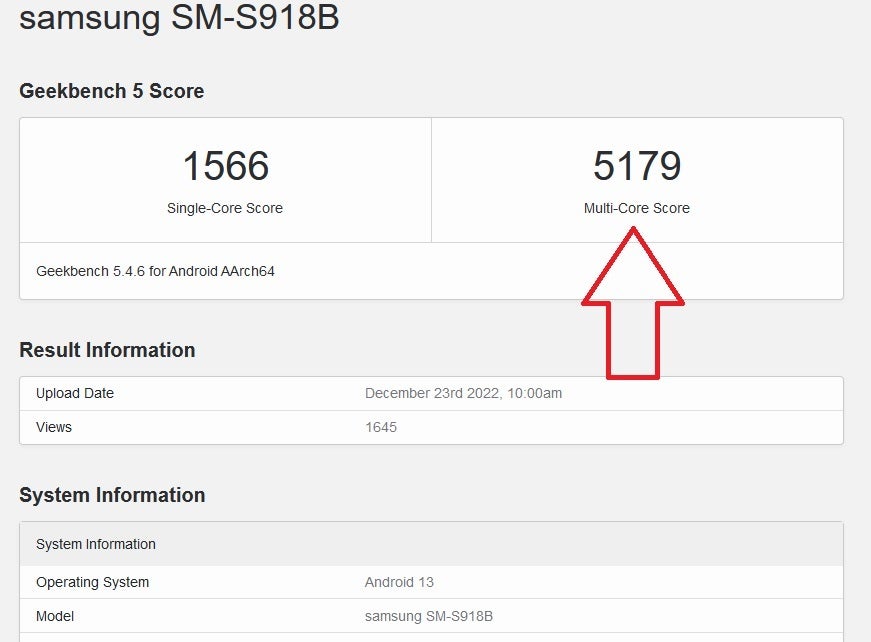Improved cooling system for Galaxy S23 series means no CPU throttling is necessary
Previous Geekbench tests hinted that Samsung was throttling the CPU of the Snapdragon 8 Gen 2 for the S23 line

This Geekbench test of the European Galaxy S23 Ultra indicates that the phone is not overheating
Let’s dive a little deeper into the Snapdragon 8 Gen 2 chipset being used by the Galaxy S23 line. There are two variants; the one that phones like the Motorola X40 and OnePlus 11 will use is manufactured by TSMC using its 4nm process node and an X-3 high-performance core clocked at 3.2 GHz. The version that will be used for the Galaxy S23 line will be made by Samsung Foundry using its 4nm process node and with an overclocked X-3 high-performance core running at 3.32GHz.
The new chipset and cooling systems should keep the Galaxy S23 line from overheating
The bottom line is that in times of heavy usage, the improved cooling systems will be able to keep the Galaxy S23 series from overheating without having to throttle the processor. And after all, what would be the point of having overclocked Snapdragon 8 Gen 2 chipsets under the hoods of your flagship phones if these SoCs have to be throttled anyway?
The tipster points out that thanks to the improved cooling system and the new Snapdragon 8 Gen 2 SoC, battery life will improve on the Galaxy S23 models and less heat will be generated. He also says that CPU performance will rise 36% compared to the Snapdragon 8 Gen 1 chip used on the Galaxy S22 series, graphics (GPU) performance will rise 48%, and performance of the Neural Processing Unity (NPU) will rise 60% for the improved use of artificial intelligence (AI) features.


